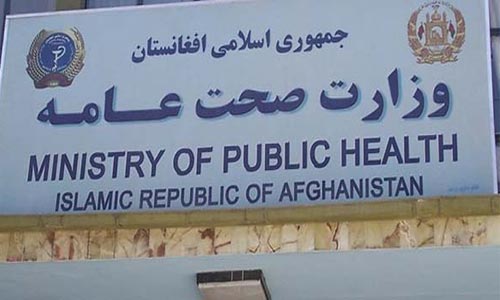The decades of war and turbulence have taken a heavy toll on life in Afghanistan. It has also severely affected the capacity of concerned agencies to respond to critical public healthcare challenges. Hereof, Afghanistan used to be called as one of the most dangerous place in the world to live a healthy life. However, it seems that public healthcare system is one of the unique sectors which relatively have better achievements with providing the widest health services throughout the country. Recently, Ferozuddin Feroz, Minister of Public Health received “Best Minister Award” at the World Government Summit in Dubai on Feb. 10, 2019. According to him, the decrease in maternal and child mortality rates and an increased access to health services are among the achievements made in the ministry. The mortality rate in Afghanistan for under five-year-olds reduced by 44 percent and on increasing life expectancy at birth by seven years.
To know more about his award, Dr. Feroz was nominated as the Minister of Public Health in early February 2015 by the leadership of the National Unity Government, after receiving the highest number of votes of confidence of all ministers from the Afghan Parliament. A total of 20 ministers were nominated for the Best Minister Award through a world survey that included several world governments, in addition to public nominations through social media. However, Dr. Feroz has been picked as The Best Minister among eight ministers who had been shortlisted after global due diligence conducted by Price-water-house Coopers (PWC). On taking up his position as Minister, Dr. Feroz set some priorities and initiated a number of reforms and changes, with the aim of achieving sustainable and better quality services to improve the health of the people of Afghanistan.
Afghan people differently reacted to the award given to the public health minister. Chief Executive Abdullah Abdullah said the award has been given to Mr. Feroz “because of his hard work and his achievements in the health sector”. “The United Arab Emirates annually recognizes a minister in the world based on his achievements and this year they have chosen him (Feroz). It is a highly reputed organization and there is no way for bribe and anything else in selecting the minister,” said Abdullah. Hamid Poya, father of a child who suffers from cardiac disease, shared the photo of his daughter and wrote that the treatment of his child was not possible inside the country despite that he visited all hospitals. “The public hospitals do not have any equipment, even the private hospitals did not have the equipment needed for her treatment,” Poya claimed. A number of face-book users shared the picture of a Bamyani boy who lost his leg due ethnical discrimination in emergency hospital of kabul, and so was taken to India for treatment.
These cases show that there are still challenges need to be improved; one of the most highlighted issues is why millions of money outflow due to lack of advanced treatment inside the country. The other major issue in the sector is availability of low quality medicine. There have been many cases when the quality of different medicine in the country has found to be of ordinary standard and in certain cases they have even found to be expired. Unfortunately, there is no data to show how many lives it has cost due to this. Though the Ministry of Public Health (MoPH) has promised on various occasions that there would be extra attention given to the sector and it would be ensured that all the required medicine for the public health and security sectors would be purchased from authentic national and international companies, while there are still concerns that in reality the practices are quite different from the promises.
As aforementioned, People mostly choose to go the neighboring countries for serious health problems. There are many people who visit Pakistan and India every year for better medical facilities. This may be convenient for the ones who are financially strong and they can afford, but the ones who cannot afford going other countries remain untreated and mostly neglected. It is really tragic for them as their own country cannot provide them even their basic rights. It can be said that from each five resident of Kabul at least one had travelled outside Afghanistan to seek the healthcare service they required.
Moreover, It is said that up to 80/90 percent of medicine consumed in Afghanistan are imported from Pakistan, Iran, China, Turkey, India, the United Arab Emirates and some European countries. It is also estimated that the combined value of both illegal and legal pharmaceuticals in Afghanistan is USD 700-880 million. A large amount of these medicines enter Afghanistan illegally and through smuggling. In brief, poor quality medicine and high prices in the market have created considerable challenges toward healthcare services in Afghanistan. Unfortunately, there is no applicable rule to control the cost of medicines. Some of clinics or private hospitals write the prescriptions in a way that no one be able to read that and this way compel the patients to buy the medicine from their own medical shop with very high price. From one hand, they provide poor quality medicine and on the other hand, inflict losses on economy of people. So, there is a serious need to limit the volume of low quality pharmaceutical products entering Afghanistan through a range of reforms to controlling of poor quality medicine and also regulate the retail medicine price.
Home » Opinion » Afghanistan public health: Achievements and challenges
Afghanistan public health: Achievements and challenges
| Mohammad Zahir Akbari

